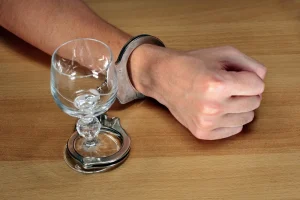
Alcohol poisoning can occur and key body systems can begin to shut down, at which point the person should get medical care or risk dying. Learn the typical Blood Alcohol Concentration (BAC) per number of drinks someone has had, and the common behavioral and physical signs for each stage of intoxication. The ability to spot these signs can help you prevent overserving — and can help you avoid potentially harmful, and even fatal, situations. Kelly is a board certified Psychiatric-Mental Health Nurse Practitioner who earned her Master of Science degree in Nursing with a concentration in mental health at Fairleigh Dickinson University. Kelly has fourteen years nursing experience as a Registered Nurse, Nurse Manager, and Advanced Practice Nurse in in which stage of intoxication does an individual become aggressive or withdrawn and sleepy both psychiatric and substance use disorder settings. She has worked in inpatient settings as well as provided community nursing as a Nurse Practitioner.

What are the symptoms of alcohol intoxication?
- If you find yourself stuck in a pattern of binge drinking or recreational drug abuse, the earlier you seek effective treatment for recovery, the better.
- Individuals may appear unresponsive or unconscious, with severely impaired motor skills and altered mental status.
- If you think it’s a case of extreme alcohol intoxication, call 911 immediately.
- Individuals might have exaggerated euphoric episodes, and their equilibrium may be lacking.
Individuals may feel a slight sense of relaxation or reduced inhibition but are generally able to function normally. Decision-making skills and reaction times Substance abuse may be slightly impaired, but these effects are subtle and may not be noticeable to the individual or others. When a person is intoxicated, they may exhibit both physical and behavioral symptoms. People experiencing this stage are more likely to experience life-threatening complications without medical intervention. Drunkenness or intoxication is a condition that occurs when a person continues to drink alcohol.

Partial Hospitalization Programs (PHPs)
- Recognizing the signs and symptoms of each level can help prevent dangerous situations and allow for timely intervention when necessary.
- For some, it may be as innocuous as taking a message from a previous relationship.
- When someone has consumed alcohol, they may exhibit physical and behavioral symptoms depending on several factors.
- A person at this stage will exhibit symptoms of intoxication that will be glaringly obvious to others.
- Simultaneously, it inhibits glutamate, which has excitatory effects, further contributing to the depressant effects what does being drunk feel like of alcohol.
- You must seek emergency medical treatment for a person who’s in which stage of intoxication does an individual become aggressive or withdrawn and sleepy showing symptoms of alcohol poisoning.
- A qualified, experienced treatment facility such as Casa Palmera offers exceptional recovery programs that can help your loved one work towards sobriety.
Reach out to our admissions specialists to learn more about the alcoholism recovery programs we offer and how to get started. The following are some signs that an individual may be experiencing critical alcohol poisoning and need immediate medical attention. When someone has had quite a few drinks, the symptoms of the excitement stage become intensified. People may start behaving with less restraint, and judgment may now be askew. Some people also get drowsy, have trouble seeing well, or even experience some minor memory lapses. If you find yourself drinking too much, unable to stop drinking, or have reached the latter stages of intoxication on a regular basis, the best time to get help is now.

Why You Get Stuffy Nose After Drinking Alcohol and How to Stop It

Individuals may exhibit slurred speech, staggering gait, and impaired coordination. Emotional responses can become exaggerated, leading to mood swings, and reaction times are significantly slowed. At this stage, the risk of alcohol-related accidents and poor judgment increases substantially.
- When a person has had quite a bit to drink, they may experience lapses in judgment or heightened emotional intensity.
- As the stages of intoxication progress, the physical symptoms can become more pronounced and potentially life-threatening.
- Thirty Americans die every day due to alcohol-related traffic accidents.
- Alcohol also intensifies existing emotions, which is why people sometimes get emotional or aggressive while drinking.
- A person’s intoxication level is measured by their blood alcohol concentration (BAC).
Stage 4: Confusion
Of course, the severity of a person’s symptoms will depend on how much they have had to drink. A doctor diagnoses alcohol intoxication with a blood alcohol check. Someone at this stage of intoxication may need emergency assistance for survival. Without medical intervention, the individual could die due to respiratory arrest, asphyxiation, or seizures. A person’s intoxication level is measured by their blood alcohol concentration (BAC).

Stage 6: Death
An individual’s reaction may vary depending on the amount they consume. When someone has consumed alcohol, they may exhibit physical and behavioral symptoms depending on several factors. Some indicators include genetics, body mass index, frequency of intoxication, overall health, and more.
- If you find yourself drinking too much, unable to stop drinking, or have reached the latter stages of intoxication on a regular basis, the best time to get help is now.
- Those can include oxygen therapy, a breathing tube that keeps airways clear, or IV fluids for dehydration.
- At 0.45 BAC or above, many people are unable to sustain essential life functions, and the risk of respiratory arrest and death occurring is almost certain.
- As alcohol is consumed, it binds to receptors in the brain, disrupting the normal functioning of neurotransmitters such as gamma-aminobutyric acid (GABA) and glutamate.
- If it isn’t resolved, the addiction might cause damaged relationships, a poor career, and poor health.